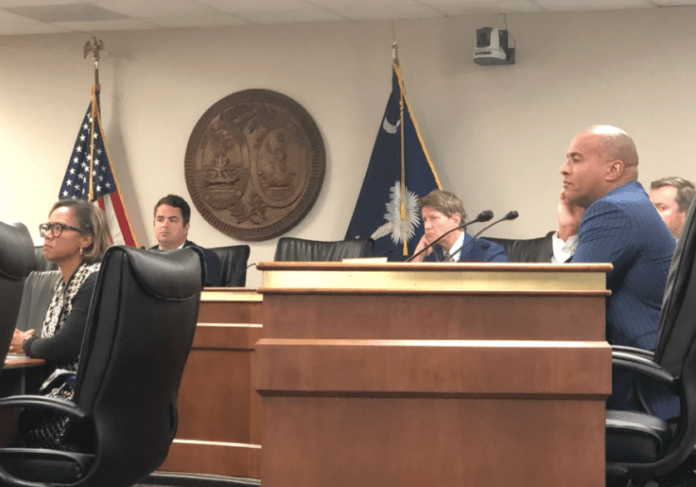On Thursday, the South Carolina Senate swiftly granted critical Senate Judicial Reform approval to a bill that would modify the process for electing judges by the Judicial Merit Selection Committee of the General Assembly.
After hours of public hearings where citizens voiced their concerns about the selection process for judicial candidates, the decision was made. It is a deal every legislator will brag about in campaign flyers, but falls short of true Judicial Reform.
For the first time, the proposal permits the governor to select individuals for the screening panel of potential judges and mandates that all eligible candidates must be submitted to the General Assembly for consideration, with a maximum of six candidates for election.
All S.C. Senators voted in agreement. The bill now moves to the House for their final approval, following their own hearings. The General Assembly has a deadline of eight weeks to come to a consensus on the proposal before the session ends.
Senators discussed the bill on the Senate floor for a few days, but with no progress being achieved, Republican Senate President Thomas Alexander proposed that a group of 11 lawmakers from the 46-member body meet privately to work out a solution, according to Republican Senate Majority Leader Shane Massey.
Massey gathered the bipartisan group in a room without windows in the Senate office building, although one senator requested windows due to nice weather in Columbia in 2024. They debated, persuaded, negotiated, and deliberated for approximately 12 hours over two days.
In all honesty, the conversation was excellent. We had interested participants who were actively engaged and expressed a variety of differing viewpoints and opinions, according to Massey.
The Senate bill does not suggest making broad, sweeping changes. Some proposals, such as removing the General Assembly’s authority to elect judges, were not considered during negotiations because they could involve amending the state constitution.
Voters want Senate Judicial Reform

The bill does not remove any members from the Judicial Merit Screening Commission but instead adds new members and gives the governor the authority to appoint individuals to the group for the first time.
The commission will consist of four members selected by the House Speaker Murrell Smith, four members chosen by the Senate, including the Judiciary Committee chairman, Luke Rankin, and the S.C. Senate President Thomas Alexander, and four members appointed by the governor. The governor’s selections would include three attorneys specializing in different areas of the law and a retired judge.
Lawmakers who are also lawyers are eligible to be part of the commission. This move upset most conservatives in the state. Critics arguing for more significant reforms have raised concerns that this arrangement could potentially lead to influence or intimidation of judges by those legislators, as they may have the power to affect their re-election prospects.
In order to address this issue, the legislation proposes a limit of four years for commission members and mandates that they take a four-year break before being reappointed. Since judges have six-year terms, this would ensure a new set of individuals reviewing their performance.
According to supporters, the screening commission cannot begin to reject qualified candidates for the election by the General Assembly until there are at least six candidates, which rarely occurs.
Another significant change involves the requirement for a judge to be elected by a majority of both House members and Senate members. In the event that this does not occur on the initial ballot, the top three candidates will advance to a second round of voting. If no candidate emerges victorious in the second round, legislators will have a week to deliberate before voting again among the top three contenders.
The legislation permits individuals to run for multiple judgeships, enabling a circuit court judge to seek reelection while also running for a seat on the state Supreme Court. Additionally, members of the screening commission would be required to step down from their positions if their family members decide to run for a judgeship.
Senator Wes Climer supported the bill, but the Republican from Rock Hill cautioned that lawmakers who are also attorneys should be mindful of their actions in order to avoid providing further justification for altering the process of selecting judges.
Climer described it as a compromise that nobody particularly likes, but everyone is able to accept.


